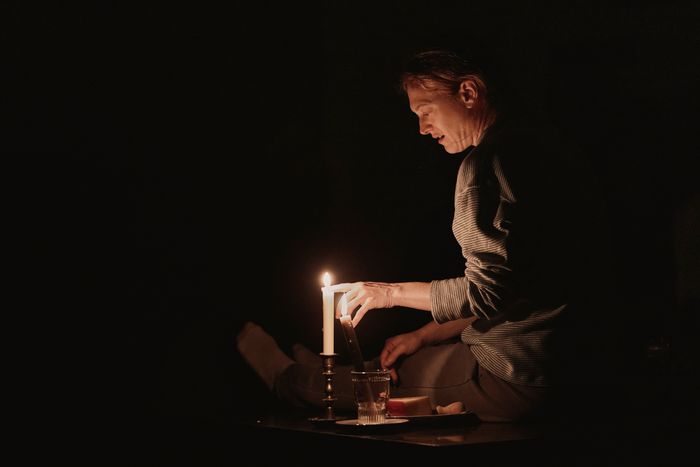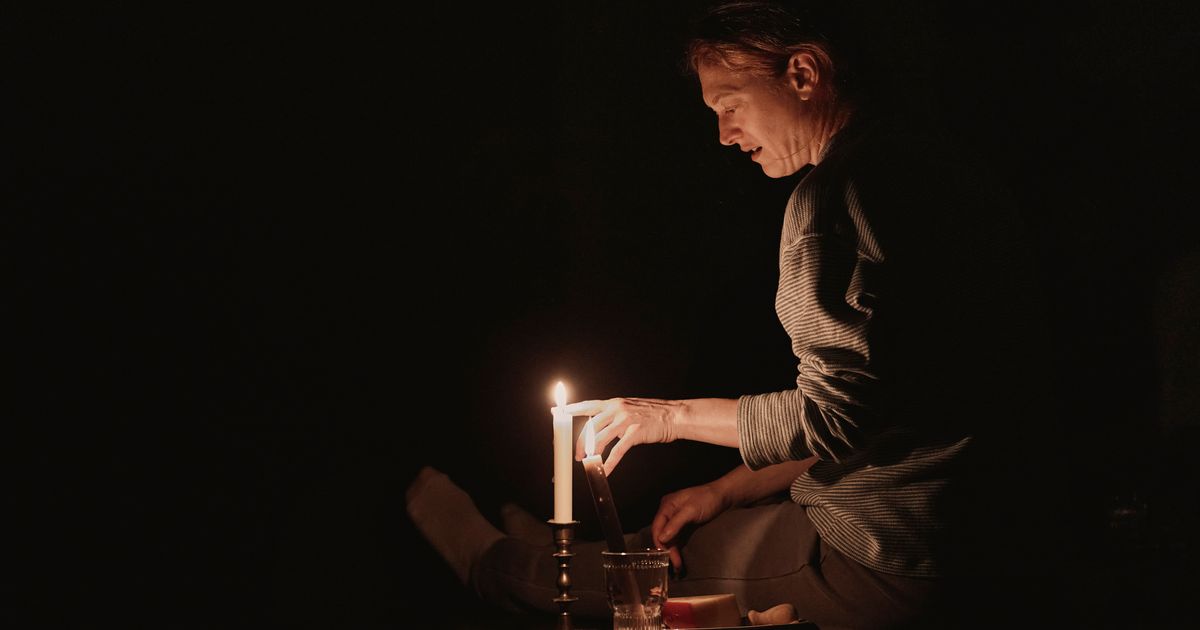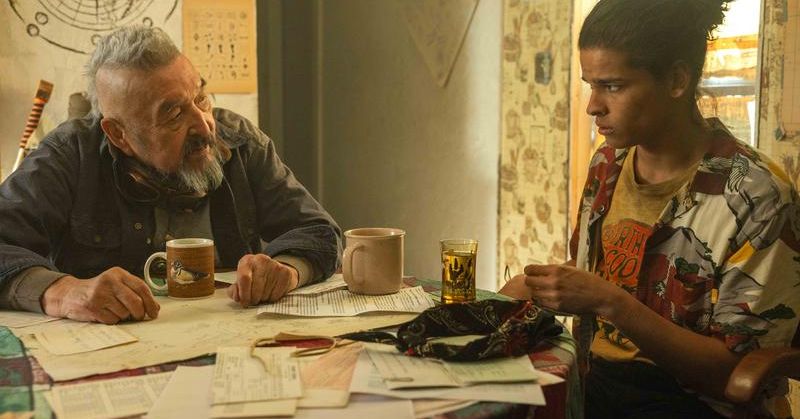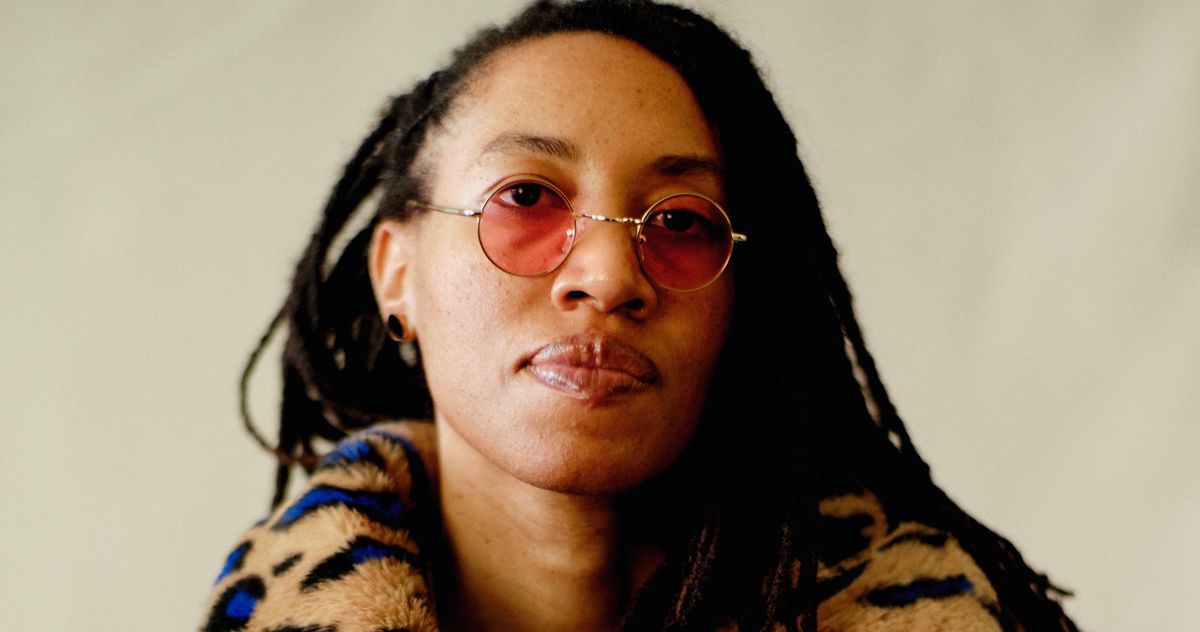[ad_1]

When Marin Ireland yells, cries, or laughs, it fills the room from top to bottom. Not that any of those are that hard in this particular room. Ireland just finished starring in a Jack Serio’s production of Anton Chekhov’s Uncle Vanya. Set in an 85 seat loft at Home Studios, after previously playing a 40 seat apartment, it’s performed with house lights on (until they’re not), and audience members scattered around the periphery of the room, staring at the actors and each other. The production, which ended on September 3, had a completely sold out run, with actors like David Cromer and Julia Chan playing to the smallest audiences of their careers. In the midst of that is Ireland as Sonya — giving a tour de force performance of a lifetime that only a few lifetimes will get to tell the tale of.
Sonya is a hard worker, a “plain” girl, and an occasional emotional wreck. Ireland vacillates between various forms of hysterics: crying, laughing, and running through the tiny space. She is eminently charismatic, and, together with Will Brill as Astrov, delivers a showstopping scene of connection toward the end of the show’s first act that is more sensual, more gripping, and more human than that scene has ever seemed before. Then, at the end of the show, she steals it back again with her pleading delivery of Sonya’s famed final monologue to Vanya (Cromer), begging him to just keep moving. “When you have a play that’s about climate anxiety, death, illness, grief, and loneliness, and you’re speaking it in a space where people are also feeling exposed, there’s something beautiful about trying to connect with that sensation,” she says of the production. “The embarrassment of it all is that I’m reminded of how silly the artifice is, pretending I don’t see these people sitting here. But the best part of it is when we all exist somewhere in between. We’re like, No, you’re here. We’re here. We’re all here together. That’s what makes it feel like church.”
I read that you became involved with the production through Will Brill and that you had long wanted to play Sonya.
As a baby actor, Chekhov was always my fave. There was this legendary thing that went on for many years in Lake Lucille with these directors, Brian Mertes and Melissa Kievman. It was a weeklong Chekhov retreat at this house from the 1800s. We would rehearse for five or six days and then do an all-day Chekhov performance with the people from the neighborhood and people from New York. It was full expressionistic insanity. It was where I really learned what Chekhov was. I did Uncle Vanya with Bill Irwin as Vanya there.
[Earlier this year], I went to see Irwin in Endgame and we were chit-chatting. Somehow, Vanya came up and he said, “Now I’d like to play the professor.” The next day I ran into Will Brill, who I didn’t know well. He mentioned, “Last night I did this reading of Uncle Vanya.” And all I was thinking was, “Yeah, but who is Sonya?” But I said, “Well, I just saw Bill Irwin, if you need a professor, he’s into it.” And they were like, ‘The guy who read it can’t be isn’t available. So actually that’d be great.” So I wrote Will an email saying, “Here’s Bill Irwin’s email address and also can I be Sonya jk, lol? I’m sure you already have somebody, but it’s my favorite play and my favorite part, so I have to shoot my shot.” So he said, “All right, if you’re serious, we do need somebody.” I wasn’t even that close with Will Brill. It happened that we were in the same place the day after I ran into Bill Irwin and they had just done the reading and I just pitched myself and Bill Irwin.
What was it like to put up this show in an apartment?
We’re really lucky in that, when we were in the original loft, we were there from day one. We built it there. I felt so much more exposed all along because of the proximity and imagining it all going down. It was so free. We rehearsed one night a week, and Jack gave us so much room to try weird stuff.
The wildest stuff were things in that space where we first performed it. Bill Irwin, Julia Chan, Will Dagger, and I started the play outside on the fire escape, which meant we had to go down out of the building, downstairs under the building, and go outside. They put a cue light out there for us, but after the first night or two, we were like, “We can’t hear anything or see anything.” So I started bringing my phone out there, and I would ask our stage manager at the time, Keyana, to text me when the play starts. And then I asked her to text me before the cue light goes on, because we just got so startled when it’s sudden.
At the end of the show, everybody would run outside on the fire escape, and then they’re just standing out there huddled on a fire escape set or whatever. We had some umbrellas out there in case it was raining. There was one bathroom for all the audience and us. There is a genuine family feeling to all of that. We care for each other and really try to connect with the play and the audiences. That’s what we all missed for the last few years. That’s something I brought up when I talked to Jack at first. I didn’t know Jack before, and, prior to me being cast, he said, “Let’s talk on the phone.” I was trying to sell myself, so I said, “I feel like I really need this. I really need this play and this part, I need to say that last speech. I need to connect with why we do this.” When you have a play that’s about climate anxiety, death, illness, grief and loneliness, and you’re speaking it in a space where people are also feeling exposed, there’s something beautiful about trying to connect with that sensation.
What attracted you to Sonya?
I’ve had Sonya’s final speech stuck to my wall for 20 years. It’s like a prayer. It’s an incantation. It’s a spell. It holds so much mystery and power for actors and theater people, partially because some of the other plays end with more of an outright tragedy. This one is slightly different. Every time I’m in a tough place, that speech returns to my consciousness. You’ve just got to keep working.
Part of what actors love about Chekhov is that as you move through your life and you have different experiences, the same play suddenly has all of that in it for you. It’s not like anything else. As you experience different kinds of grief, different kinds of heartbreak, different kinds of love, you look at the same play you worked on when you were in college and all the things you just went through are there, and you didn’t even know they were there before.
What have you unearthed about Sonya, 16 years after you played it at Lake Lucille?
When I was younger looking at Sonya, I thought much more about feeling anxious and ugly and unsure and nervous around Astrov. Now, I was really struck by how old their relationship is, and how their relationship is working for them. Until Yelena and the professor show up, this “once a month” hang works. And there’s a big line that he says to Yelena, “If you had asked me how I felt about her a few months ago before you guys showed up, it might have been something different.”
That’s part of why there’s so much elasticity in these plays. Because I was like, I don’t think right now I’m interested in the version of Astrov and Sonya where she’s a fool. It feels interesting to think, No, she’s one of his best friends. She’s a really good listener and she’s young because she hasn’t actually experienced a lot of things. But she’s not a fool. This isn’t a play about some strangers who knock on the door and show up at the house. This is a play about really old feelings, old grief and new grief, and unresolved feelings.
There’s a sexiness to your version of the scene between her and Astrov. How did that develop?
Sonya is running this farm. She’s very much in her body in one way and not in another way. So I was like, Well then let’s kind of go for that. Let’s make her deeply physicalized. She almost doesn’t talk at all in that scene. He does all the talking. She’s a great listener and that’s incredibly sexy. I’m like, Of course he felt like this went great. Of course he loves her. She listens. We were running lines the other day, and Will kept being like, “Don’t you say something there?” And I was like, “Nope.”
Me and Will just had a really fun chemistry, and most of the weird stuff we do in that scene just came out of us playing around with who we are with each other. We were making each other laugh. And then, as we were talking it through, we were like, “Well, why not?”
The other thing about Sonya that I thought before working on the show again was that she always thought she was ugly. But now, I don’t think she ever gave one thought to her physical appearance before Yelena showed up. It doesn’t have to be a story about somebody who always thought she was an ugly person. Then Astrov says, “If your Yelena wanted to, she could turn my head.” I don’t think she’s thought about her physical self as a sexual being until this began happening, which means there’s nothing threatening about touching him. But now it feels different, and what if it’s only just in this scene that she only realizes how different this moment could be? So then I don’t get ahead of myself, being like, Are we almost going to kiss? That’s not in my lexicon. He’s telling me all his secrets. This is so intimate. I get to be surprised by it.
In your soliloquy directly after that scene, when you say something to the effect of, “I wish I wasn’t so plain,” it felt like it’s the first time she’s had that thought.
Especially the way we’re playing it, when he says, “The only thing that still moves me is beauty,” then follows it with, “I think if your Yelena wanted to, she could turn my head overnight,” it’s very exciting for me to play. What’s he about to say? Maybe he thinks I’m beautiful. What if I can keep all of that alive until he says Yelena? And then I’m just like, Right. That’s beauty. Sonya’s able to find ways to keep hoping for things.
When I was working up at Lake Lucille with Brian, he used to talk about how, in Chekhov, when it seems like the characters are sitting still, they’re actually running full speed in two opposite directions in their heads. There’s no stasis. They’re literally just suspended, vibrating. One version of that with Sonya could be hope and despair or hopelessness. But I try to find a way for her to hope through it and to use that to get up in the morning. She thinks she knows what he is going to say to Yelena. Maybe she thinks, Fuck, now I know I’m not beautiful. He said Yelena was beautiful, and he’s looking right at me. But she’s never had that exact thought before because she just hasn’t thought about it. She’s running a farm. Am I pretty? is a luxurious thought.
The arrival of the professor and Yelena as someone who’s thought of as successful and someone who’s thought of as beautiful causes Vanya and Sonya to think about the fact that they’re not successful and they’re not beautiful. By Act Three, they’re both in crisis over it. They were getting along just fine, not thinking about every day. It’s a midlife crisis.
That also makes me think of the 19th century’s invention of boredom. No one was able to be bored before, and then Yelena comes in, bored. There’s a luxury to that.
Absolutely. There are a million things.
Sonya’s way of being is to not speak and then have these very intense moments of outpouring, whether it’s crying or laughing. How do you calibrate that in such an intimate space?
One of the things also about this play and Chekhov and plays in general: They’re so embarrassing. You just feel so exposed. And this girl feels embarrassed. I feel embarrassed as Sonya a lot. And it was really hard calibrating the outburst in Act One. I don’t say a lot in Act One, and then I have that giant speech about Astrov and how incredible he is. She feels so transparent to me and it’s just so embarrassing. I decided to be like, Well, I’m just going to go for broke. It’s her house, she doesn’t give a shit if she’s having a big feeling. She’s young. Especially in the smaller space, you could feel the yelling and the big feelings bounce off the ceiling.
Does it feel embarrassing to be surrounded by an audience with the house lights on?
Yes, big time. These Chekhov plays are huge asks emotionally. There’s no cheating in these plays. They bring every actor everywhere to our knees. It’s embarrassing to go out there and be like, Here’s me in a Chekhov. We really have all felt like the times when it’s not working are the times where we aren’t just opening up our whole veins and our hearts. Especially because everybody’s right there. The emotional jags that these characters make only make sense if you need it that bad.
Your final monologue has come up as a gigantic part of your life. I have to imagine it was intimidating to create your own interpretation. Where do you get started?
You know that you’re going to disappoint yourself, so you have to approach it by asking, “What’s the scene?” as opposed to “What is my performance?” I did sort of ask Jack to just let us build to the end and then see where it is. I tried not to make too many big decisions about it before we worked through the whole play. And then it was a lot of, Let’s just play it out and see what you discover.
For me, there’s a beautiful thing in that the play is called Uncle Vanya. It’s not called Vanya. And he’s only her uncle. It’s not just her or him, but it’s her looking at him. They both get completely smashed, heartbroken, almost simultaneously. Act Four is them coming back together. And I think of it very much as him being her reason for going on. The speech is for him. That’s different every night. It’s a conversation between us. If I tried to come up with something before we were doing it every night, then that’s artifice. I just learn the lines, think the thoughts, and then it’s all about him. Just get him through.
So you relinquish control to David?
Yeah. I only keep talking. He needs more, and then I stop when I think we’ve gotten to a place where he’s going to be okay for now. That speech used to mean something different to me, or maybe I never really understood things that it meant. I believe that we don’t know who we are until we get our heart broken, and that sometimes it just keeps breaking. That’s life.
Sonya has listened to everybody the whole play. When she wants to talk about Astrov, she tells Yelena to talk to her about him. She doesn’t have those words. She’s listening to everybody tell her about who they are, and then, at the end of the play, she has to metabolize that into something. It’s most enjoyable for me when I am discovering those thoughts for the first time and that she’s never put those things into words before. I’m looking for that every night.
In your interpretation, she never had to have those thoughts before, right? Because she had hope.
Act One for Sonya is a great day. Her dad’s here. They went on this hike. He seemed to have a good time. Astrov is here. He’s going to stay over? Fantastic. Things are a little haywire, but she’s holding it all together. And then we have a month in between, and it just sucks after that. Now, nobody’s helping her. The journey for her is so immense, shouldering everything and learning things about herself that she never had to learn.
Because the alternative to playing her as a fool is for her to be naïve.
Yeah. The youthfulness in her is why she’s open. She hasn’t lived in the city. Why would she feel guarded? What is she guarding from? And now she feels it’s because she’s ugly. But I think I’m glad for her that she grows. It’s part of just living.
Do you think after the run of this show, you’ll be ready to be done with Sonya?
Never.
If they asked you to come back and do this production again, you would?
Yes. I would do it all the time. I’d do it forever. These plays kick your butt. But the alchemy of it is really special. This is the dream when you’re a kid, you want to do Chekhov in New York City. We’d all been so sad when we ended the first time, but when the run first extended and we found out we were going to get to do it again, it was like, “[groans] Oh, good!” But it’s a huge gift. These things don’t come around that often.
This interview has been edited and condensed for clarity.
[ad_2]
Source link




